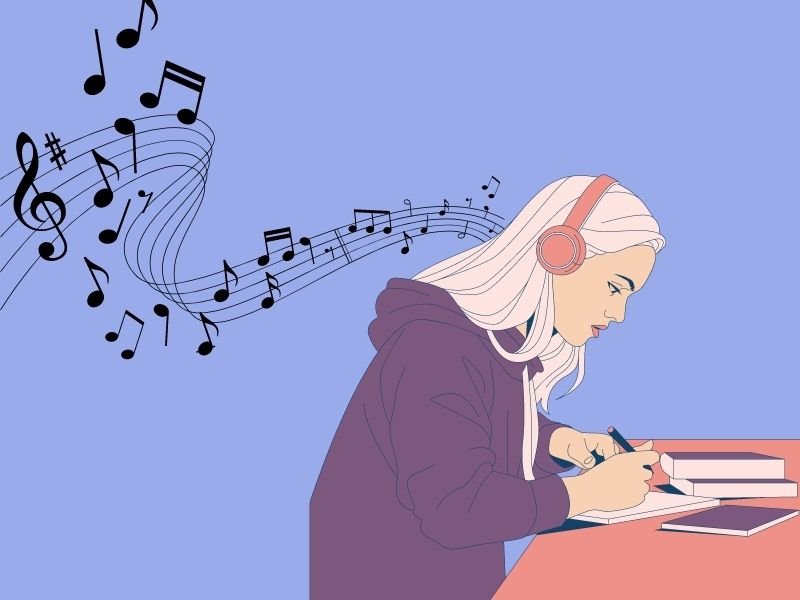Music to Mind
March 15, 2023
Music is defined by the Oxford English Dictionary as “vocal or instrumental sounds (or both) combined in such a way as to produce beauty of form, harmony, and expression of emotion.” Many people use music as a form of expression and a way to understand their emotions.
Students, young adults, and teens rely heavily on music in their lives. And students at Waltham High School agree. Students feel that music has a large impact on them and they have a deep connection with it. Students at WHS use words like expression, emotions, escape to describe what music means. Most would even stretch to say that it is extremely important.
“I don’t know… I just feel like it takes me to a happy place,” said WHS freshman Mikayla Penta.
Music is loved and needed by students. Unfortunately, for years now, teachers have fought the battle of students listening to music in class. Teachers’ opinions on listening to music during class vary. Mr. Hacker, an English teacher at WHS, says, “If you have a headphone in, that says to me, the teacher who’s standing in the front of the room trying to teach a lesson, that you’re only half engaged.” Many students would disagree with this statement. They argue that one airpod means they can still listen to two different things at once. Hacker believes that headphones should not be allowed in class. From his point of view, class time is for listening to your teacher and learning. Most teachers have about the same reaction to students not listening to them, and listening to their music instead.
It is apparent that we cannot ignore the needs of both the teachers and students. The impact and attachment students have to music is far too great to disregard. This issue could be resolved through communication. Students need to be able to communicate how it is an essential part of their life, and teachers, like WHS English teacher Ms. Black, can explain to them that by listening to music, “It should be clear that it is okay in some instances, but not others.” Moving forward, students and teachers should try to explain their perspectives rather than just casting one or the other as the “bad guy.”
Some kids are listening to 7-8 hours a day, and the school day is 6 hours. The real final question is why? Why do kids feel such a deep connection? It can be a form of expression, a way of coping. A lot of kids have a hard time in high school, and music is something that they can access for comfort and support. The University of Arizona reported, “the act of privately listening to music allows individuals to experience self-acknowledgement and create a comfortable headspace.”
“That song will just take all the stress and will just help you get through it,” said WHS freshman D’Ani Jean.
Statistically music can help students focus better in school. A survey conducted on high school students by Colorado State University proved that students who listen to music in class tend to have a GPA that is higher than 3.2. Scientists say that listening to music while studying, or trying to learn something will trigger the two parts of your brain (left and right). This makes the brain more engaged and makes it easier to take in material and remember it. Music decreases stress, and even during tests, students find it easier to complete the test.
“I like it because it helps me focus,” reported a WHS freshman.
Not only is music used in the classroom but also on the court. WHS student athlete Avery Leeman says, “Music gets the adrenaline going…. it just makes your mind set differently and focus on the game so you do not focus on other stuff when it is silent because of music. I feel like I don’t think about anything but the game.” Music helps students perform and prepare for their sports games. Music creates a more positive mode supporting the performance of athletes.
Whether or not teachers and students will ever agree, there is scientific evidence that the effect music has on students while learning is beneficial and should be taken into account when making classroom expectations. The discussion of music in classrooms should connect to the science of its benefits but ultimately needs to be discussed between students and teachers because they are the ones creating a classroom community that needs to equitably meet the needs of the community members.


Fire Collins • Mar 28, 2023 at 11:14 pm
Miyana,
This article is really good. I like it because I connect with music in my daily life and what you reported makes sense. I use music when I am feeling down or when I have to escape. Listening to music resonates with me because it connects with what I am feeling. The article has a lot of good points. F